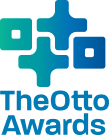After my interview with Denise Brosseau a few weeks ago about the importance of thought leadership for entrepreneurs, many of you emailed me and asked how to get started as an early-stage entrepreneur. So I turned to a founder who is crushing it: Shely Aronov, founder of Innerplant, a startup that enables crops to communicate with their farmers (yes—crazy and awesome!). Thought leadership has been a key tool in her company’s success.
At seed and pre-seed companies over the years, Shely identified four stages of marketing: visibility, credibility, inevitability, and profitability. “You have to build a flywheel to accelerate through each stage,” Shely says. “Thought leadership can be hugely valuable at every stage, and critical in the early ones.”
At Innerplant, the marketing flywheel started with a series of articles Shely wrote for Forbes, but they quickly transitioned to the “Croptastic” podcast created by her and Sean Yokomizo, the company’s director of communications. Just a few weeks ago, the company hosted its first in-person event.
Given some of the huge podcasts out there, it can feel daunting to start your own small podcast. But don’t compare yourself to someone like Joe Rogan. “For most startups, you’ll have niche reach, and that’s fine,” Shely says. “For us, we wanted farmers and the AgTech community. It’s a small group, but those are the people that drive partnerships and funding.”
Like building a content marketing strategy, success isn’t immediate. But when it comes, it can be big. “Our partnership with John Deere is a direct result of our podcast,” Shely says. “A key John Deere employee loves ag content and he’s listened to every episode. He connected us to the right people,” and suddenly the company was positioned to close a critical deal.
Thought leadership also keeps you connected with stalled business development leads. “It’s a great place to put people when there’s no clear next step,” Sean says.
Regarding the perennial question whether it is hard to keep cranking out content, Shely emphasizes that it can be more rewarding than you might imagine. “It’s super fun to do. It’s a great way to meet interesting people,” she says. It even becomes its own business development opportunity. “We’ve had good success inviting people we don’t know, but admire, to come on the show.”
The leap to an in-person event, Croptastic On Stage, represents Innerplant’s next stage of thought leadership evolution. While it costs several orders of magnitude more than doing a resource-efficient podcast, Sean sees it as a critical piece of marketing. For Innerplant, they connect with a lot of tech companies, which are concentrated in the Bay Area. But the key customers are the farmers, which they visit across the country.
The in-person event is an opportunity to bring these groups together—in a forum, of course, where Innerplant has defined itself at the center of the industry. Even when there is controversy or hard issues are raised, the key thing is that the discussion keeps the startup at the center of the conversation. The connections and impact from this event were so impressive that they are already planning the next one.
“This meeting proved the value of developing a strong thought leadership program,” Sean says. The audience was very engaged in the subject matter, which was focused on innovation in agriculture. And the thought leadership investment has made Innerplant a central player in that area of innovation. “Our thought leadership has developed an audience that is highly invested in InnerPlant’s story and trajectory,” he says.
Shely is also excited about the momentum their efforts have created. “We’re getting to the inevitability stage,” she says. “Marketing momentum is a real thing. It’s hard to explain it until you experience it. You’re doing the same things as before, but everything just gets easier.”

